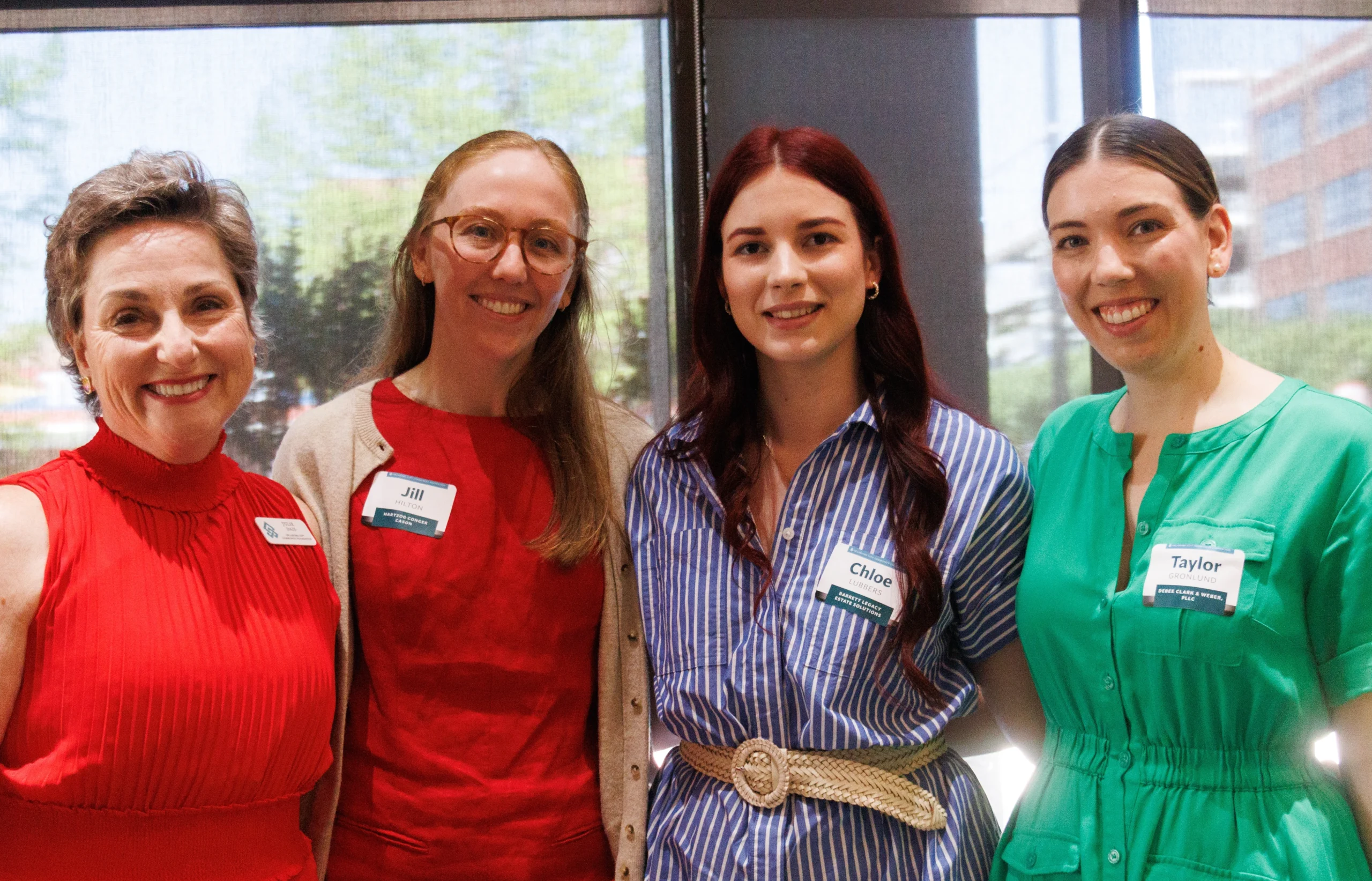Navigating New Laws: Opportunities for 2025
By Julie Dais, Director of Gift Planning
It’s more important than ever to stay informed about how changes in the tax law may affect charitable giving. The recently passed One Big Beautiful Bill Act (OBBBA) creates challenges as well as opportunities for structuring philanthropy for your clients. It’s very possible the new laws will impact your clients in different ways, so we encourage you to familiarize yourself with the OBBBA.
As always, the team at the Oklahoma City Community Foundation is happy to work side-by-side with you to build a customized giving stratey for your clients that will meet their charitable and financial goals as well as serve them in 2025 and beyond.

OCCF’s Julie Dais with advisors Jill Hilton, Chloe Lubbers and Taylor Gronlund.
To help you along this journey, we’ve highlighted three tax-savvy giving strategies to consider for your clients.
“Bunching” – Is it Right for Your Clients in 2025?
The OBBBA increases the 2025 standard deduction to $15,750 for single filers and $31,500 for married couples filing jointly for 2026. The higher standard deduction will improve tax simplicity by reducing the number of people who benefit from itemizing over taking the standard deduction, even with the expected uptick in the number of itemizers thanks to the OBBBA’s state and local tax deduction allowances.
What and Why of Bunching: By utilizing a donor-advised fund at the Community Foundation to “bunch” gifts, your clients can make several years’ worth of charitable contributions in a single year to exceed the standard deduction threshold, thereby maximizing tax benefits in that year. Over the following years, their donor-advised fund can distribute grants to charities, ensuring their community support continues to impact the causes they care about.
But that’s not the only reason you should consider discussing front-loading charitable contributions with your clients.
In 2026, a new provision under the OBBBA takes effect that allows you to take a deduction for charitable gifts only to the extent that your giving exceeds 0.5% of your AGI.
Example: An itemizer earning $400,000 would need to exclude the first $2,000 of their donations before receiving any tax benefit.
“The 0.5% income floor requires itemizers to omit the first 0.5 percent of income worth of charitable giving before the itemizer can deduct further charitable giving in the calculation of their taxable income, reducing the value of the itemized charitable deduction.”
– Tax Foundation 2025
What’s more, if you’re in the highest tax bracket, 37%, you can still only deduct charitable contributions at the 35% rate.
Of course there are also exceptions and nuances to consider. For example, if you are 65 or older, you’re eligible to receive an additional $6,000 “bonus” deduction—but it begins to phase out if your modified adjusted gross income (MAGI) exceeds $75,000.
Coming Next Year – Deductions for Non-Itemizers
Single Filers
Joint Filers
Your clients who don’t itemize their deductions will be glad to know that starting in the 2026 tax year, they can claim a deduction for cash gifts to qualifying public charities—up to $1,000 for single filers and $2,000 for married couples filing jointly. This deduction could be an opportunity to encourage your younger clients to get involved in philanthropy or engage new generations of your clients’ families.
Note: Donor-advised funds and non‑cash gifts are excluded from this new provision, but there are funds at OCCF for cash gifts that make a more immediate impact including scholarships, nonprofit endowment matches and community grant programs.
Qualified Charitable Distributions
Rather than relying on an itemized deduction, a Qualified Charitable Distribution (QCD) enables individuals aged 70 ½ or older to donate up to $108,000 per year (as of 2025) directly from an IRA to eligible charities, and exclude the donated amount from taxable income altogether. Since QCDs provide a direct tax benefit regardless of whether your clients itemize or take the standard deduction, QCDs may be especially advantageous after the OBBBA’s increase to the standard deduction. Indeed, using a QCD to fulfill Required Minimum Distributions (RMDs) can lower
2025 QCDs up to
your clients’ adjusted gross income, potentially reducing taxes on Social Security income and Medicare surtaxes and helping them sidestep the new floors and caps on itemized charitable deductions imposed by the OBBBA starting in 2026.
OCCF is happy to collaborate with you and your clients to explore ways to achieve their philanthropic goals under the new laws. We look forward to hearing from you!
The expert team at the Oklahoma City Community Foundation serves as a charitable giving resource to enhance the knowledgeable service you give your clients. We’ll help you structure a giving plan that maximizes tax advantages while achieving your clients’ charitable and financial goals. This newsletter is provided for informational purposes only. It is not intended as legal, accounting or financial planning advice.
